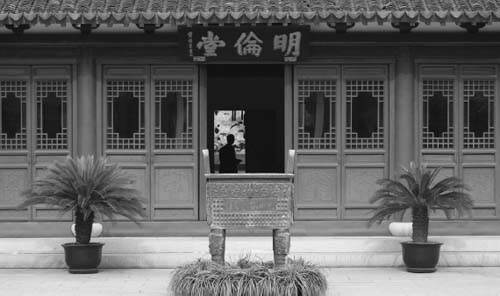Confucianism, the Literati, and Chinese Imperial TraditionsLeadership, Authority, and Religious Roles |
Is there a central teaching authority for Confucians or CIT? |
One could argue that the social institution of the Literati functioned as a central teaching authority. There is no doubt that they set up the system to which any person of talent and ambition who wished to advance would have to conform. Complete with its regimen of demanding examinations, degrees, and apprenticeships, the Literati system of public service also had its religious implications, given the overall context in which traditional Chinese saw the role of the emperor. And there is no doubt that the system offered little or no flexibility—make the grade or wash out. The Literati system was, therefore, a central teaching authority for a limited segment of society. Even the ordinary people in towns and villages came under at least indirect influence of the system. But the system did not make its demands on regular people the way it did on those who aspired to rise within its ranks.

A wen miao, or memorial hall, in Shanghai.
